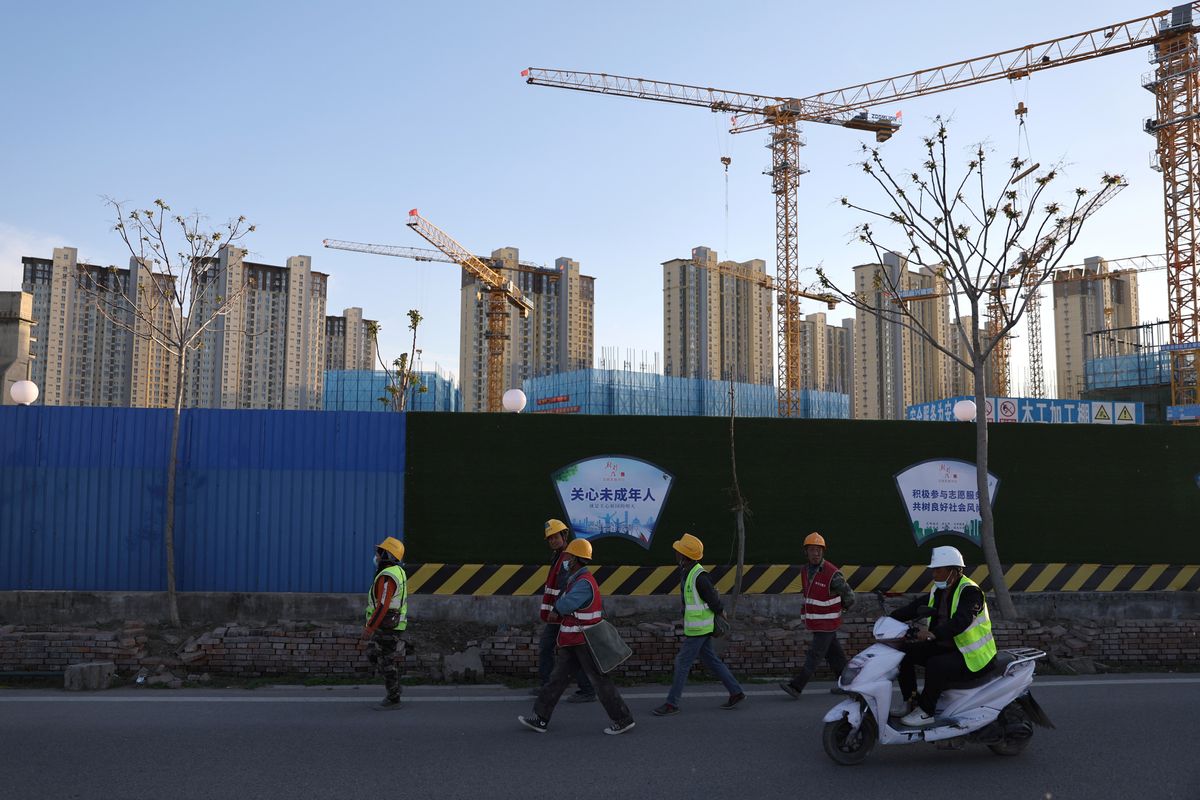Is China's US$1.3 trillion housing crackdown paying off?
Policymakers in China have pulled out tactics to address the affordability crisis and to reduce financial risk.

A few minutes every morning is all you need.
Stay up to date on the world's Headlines and Human Stories. It's fun, it's factual, it's fluff-free.
The backstory: China's property sector makes up nearly an estimated 30% of the country's GDP. But, the government has been cracking down on the industry, including putting in place measures such as restrictions on developer borrowing and increased down payment requirements, all to make housing more affordable for its citizens as well as to stabilize the mountain of unsustainable debt in the sector. In total, this has cost investors and banks around US$1.3 trillion(HK$7.8 trillion).
More recently: Policymakers in China have pulled out tactics to address the affordability crisis and to reduce financial risk, including weakening overleveraged companies (like Chinese developer giant Evergrande) as well as increasing down payment requirements, property taxes and a focus on renting rather than buying. Unfortunately, while these efforts have had some success in lowering home prices, they have also resulted in a decline in home demand and a slowdown in the housing market. New home prices fell for the 15th straight month in November.
The development: One thing for sure is that China's housing still remains unaffordable for many people – and it's possibly the world's most unaffordable housing market. In Beijing, for example, the ratio of median home prices to income reached 25 at the end of 2021, compared to 20 in Hong Kong and just seven in the US, according to Nordea Corporate. It's not clear that the average homebuyer has benefited from the government's efforts, with some left wondering if the sector-wide crackdown was worth it.
Key comments:
"Putting on the brakes is one thing, but slamming the brakes on and making the car engine dead is another," said Qin, a project contractor who wishes to remain anonymous, speaking on China's sudden move to ease the property market crisis. "Evergrande has a huge problem, but it should've been a 'soft landing' rather than what's happening right now."
"China's housing market could see only a sluggish recovery in 2023 with new-home sales growing at a low single-digit rate or slower, driven by a weak economy, falling housing prices, the sector's liquidity crunch and the Covid-Zero policy," said Kristy Hung and Lisa Zhou, real estate analysts, when China's home sales dropped significantly in October.
"We think the efforts to support the economy (especially the home market) should be delivered sooner rather than later," said Citi analysts in a note seen by Reuters, on expecting China to reduce the mortgage reference rate by 10-basis-points.




Comments ()